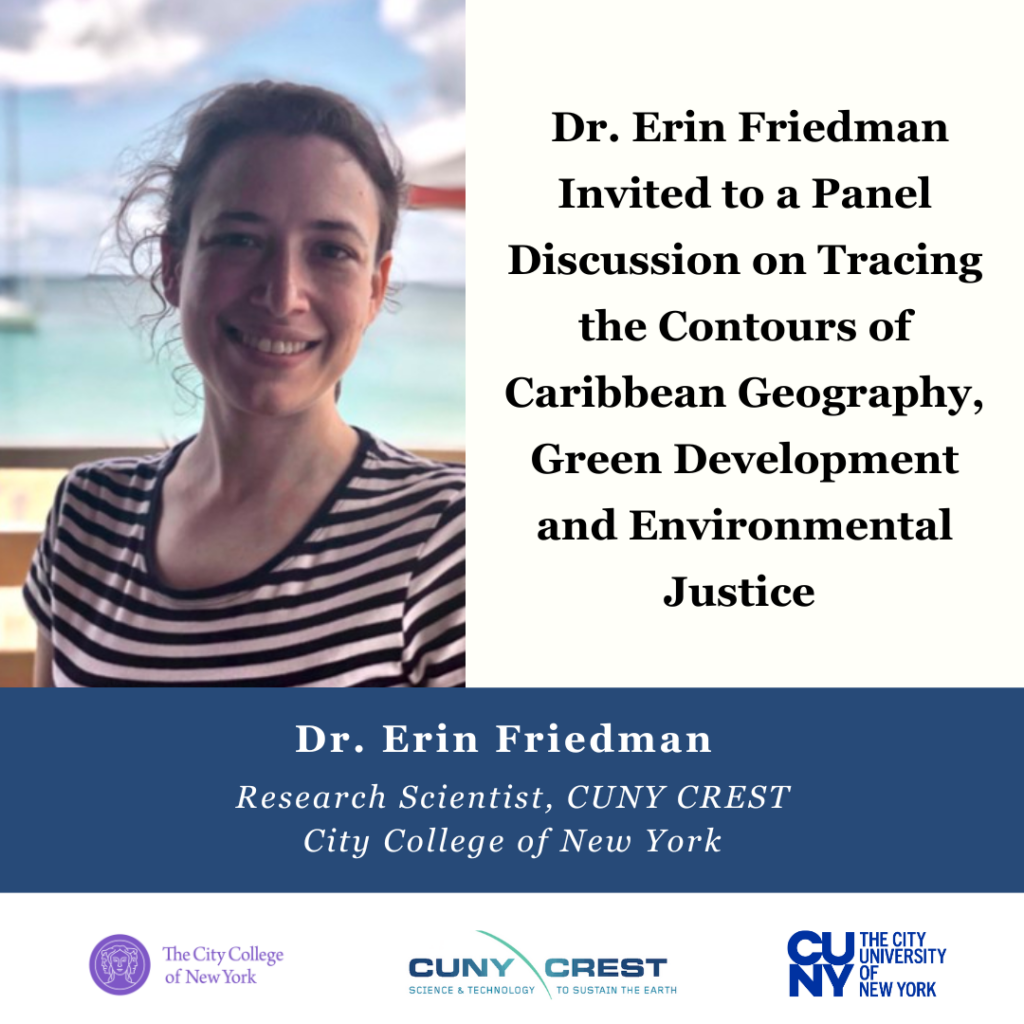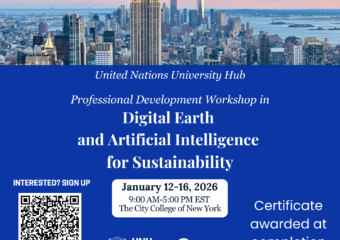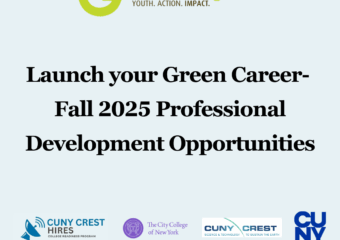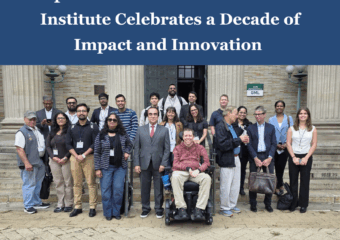Dr. Erin Friedman Invited to a Panel Discussion on Tracing the Contours of Caribbean Geography, Green Development and Environmental Justice
CREST Scientist, Dr. Erin Friedman was invited to a panel discussion on Tracing the Contours of Caribbean Geography, Green Development and Environmental Justice, as part of the Caribbean Geography Specialty American Association Geographer’s (CGSG) group seminar series. The event was held on May 29, 2024. Dr. Friedman is the chair of the CGSG group. She works with a board group to organize activities throughout the year to engage and broaden the outreach for geography research in the Caribbean.
The purpose of this event was to discuss green development and environmental justice in the Caribbean. Ariadne Collins Lecturer, School of International Relations Center for Global Law and Governance University of St. Andrews served as the co-panelist while Suzanne Nimoh, PhD Candidate, Department of Geography and Environment University of Texas Austin served as the moderator for the discussion. The recording of the session is available here.
One of the highlights of the event was a discussion on why the Caribbean is a critical region to study in terms of the histories and futures of globalization. In response to “Why should we be talking about the Caribbean when we discuss development?”, Dr. Collins highlighted a significant point by asking, “whose development” are we talking about when we ask this? From this, the panelists had an interesting conversation from different points of view while conducting their research in Guyana and Antigua on how the Caribbean was the starting point for economic globalization and continues to play a significant role today. Further, Dr. Friedman said, “I connected this conversation to each Caribbean country’s dynamic and different nature and how resources have been exploited from the 15th century onwards. For example, Guyana’s climate and development issues are quite different with oil extraction than in Antigua where coastal resources were exploited for tourism. This paints a complicated picture of climate injustices in the region and shows that adaptation solutions can’t be a one-size-fits-all all situation.”
Suzanne Nimoh brought up poignant and insightful questions for the panel. One of the questions was, “How can we practice global climate solidarity in the everyday while living in the imperial core? How can we move from a lens of solidarity over charity with the Caribbean?”. Commenting on the same, Dr. Friedman said, “I thought this was such a great question. Ariadne and I talked about integrating civil society into adaptation solutions more than it is right now. I highlighted that because climate adaptation is prioritizing economic growth, civil society is left out of the decision-making process. You see a lot of focus on infrastructure and high-level projects. Ariadne complemented this by highlighting that in the discussion of climate justice, we need to recognize people fighting for racial justice and asking how we connect these conversations and realize that the environment is interconnected with race relations. Specifically, Ariadne highlighted that people who were oppressed through colonial encounters feel like they’re not being heard on environmental issues.”
Talking about her motivation to be on this panel, Dr. Friedman said, “Dr. Alex Moulton, Assistant Professor of Geography and Environmental Science at Hunter College, invited me to this panel discussion. Dr. Moulton organizes these talks as a part of the Caribbean Geography Specialty Group at the American Association of Geographers outreach activities. I was excited to deliver this talk on green development and environmental justice as it is what I study in the Caribbean. However, I also looked forward to discussing this further with Dr. Ariadne Collins, whose work in the region I greatly admire.”
Dr. Friedman also highlighted that the findings of her research drove their discussion. For those interested in gaining insights into the background of the discussion, Dr. Friedman recommended, “Dr. Ariadne Collins has a new book that just came out if you would like to read further about financialization-driven environmental governance and its uneven impacts on communities in Guyana. The book is “Forests of Refuge: Decolonizing Environmental Governance in the Amazonian Guiana Shield.” Additionally, I also published an article recently called “Constructing the adaptation economy: climate resilient development and the economization of vulnerability” in Global Environmental Change.”
Dr. Friedman is grateful to the CUNY CREST Institute, she said, “Working on applying for grants with colleagues at CREST focused on the Caribbean allowed me to reflect upon environmental justice issues in the broader region.”
The panel discussion was engaging and productive.




